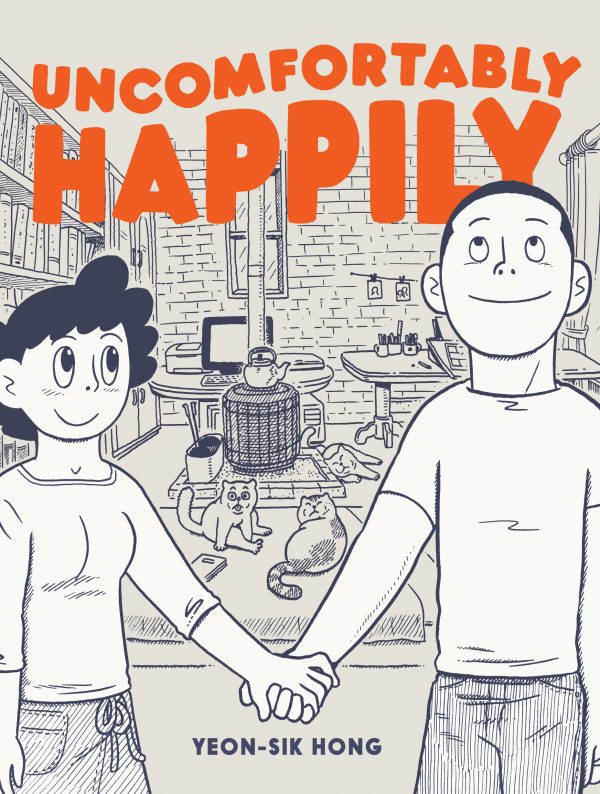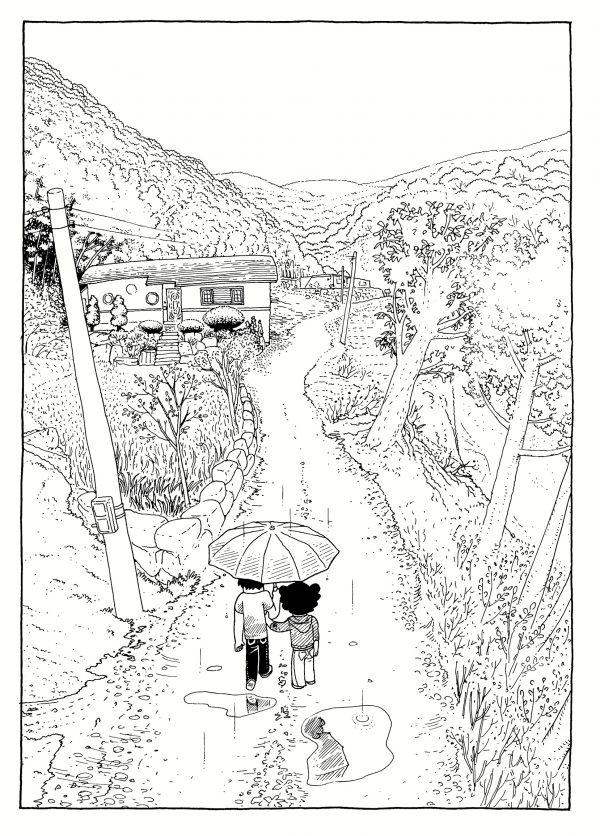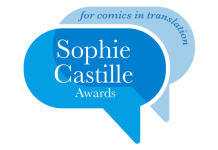There are going to be a number of American readers who see themselves in Korean cartoonist Yeon-Sik Hong’s Uncomfortably Happy, especially creative people and freelancers.
This autobiographical book chronicles the move Hong, and his wife Sohmi made from Seoul to a small, rural house on a nearby mountain, getting into the details of the adjustment and the changes that come within themselves due to the move. At first, Sohmi is much more happy about the new location than Hong. He’s making a living with work-for-hire projects, though the emotional stress they heap on him whittle away the profit he makes. Continually questioning himself and his career decisions, Hong fixates on the negative aspects of their new living situation and begins to align them emotionally with the resentment he feels about his own work.
The new house is a culture shock, to be sure. Removed from his social network and the assurance of human bustle, Hong has a lot of clutter to get out of his soul, and that’s not always easily done when it’s not totally your choice. The low income adds to the stress, and the fact that any given errand that used to be routine — say, going to the grocery store or the post office — requires a larger effort. And to make it easier by purchasing transportation, that circles back to the income problem. But to get more income, you need to kill your soul just a little bit more, if there is anymore soul left to kill.
You get the idea.
The hardships do pile up, but never to disaster level, since this is no tragedy any more than the typical life of a creative freelancer is a tragedy. Instead, it’s a challenge to grow, and at a certain point, Hong does exactly that, allowing him to see his new home clearly and become a part of it rather than remain an observer, a visitor.
In this way, and through to the end, the story becomes about reconfiguring your view of life. You can define your life as something not in your control and approach each problem with defiance, peppered by resentment, or you can approach any situation as a challenge. This is particularly helpful for Hong in context of his partnership with Sohmi, an aspiring children’s book writer. The other side of this story is that Hong’s suffering in is service of Sohmi’s success — someday. His soul-crushing jobs, his agreement to move to the mountain, it’s all to make her experience smoother as she pours her time into creating books to start a career with.
And that’s one of the real differences about Uncomfortably Happy. Very often when established relationships are depicted as the center of a story, it’s during some incident of conflict that threatens the relationship’s existence. But in Hong’s telling, there is no point that the relationship was threatened. The only choice was for the couple to come together and make solutions through their partnership, which is what happens. Her victories are his and vice versa — his pains are hers and vice versa. It’s about getting through life together.
That’s what impresses me most about Hong’s book — it doesn’t feel self-indulgent at all. If anything, it feels universal, inclusive. I feel like I’ve read a billion autobiographical comics that cover relationships and creative pursuits at this point, but none that do so quite in this way. I love its optimism, and its lesson that keeping optimistic isn’t a simple thing to do. One one hand, this is a sweet story about a married couple trying to get by in the world, but on the other, it’s a treatise on transforming yourself and staying positive about it. And as corny as that sounds, it’ll seep into your soul.









